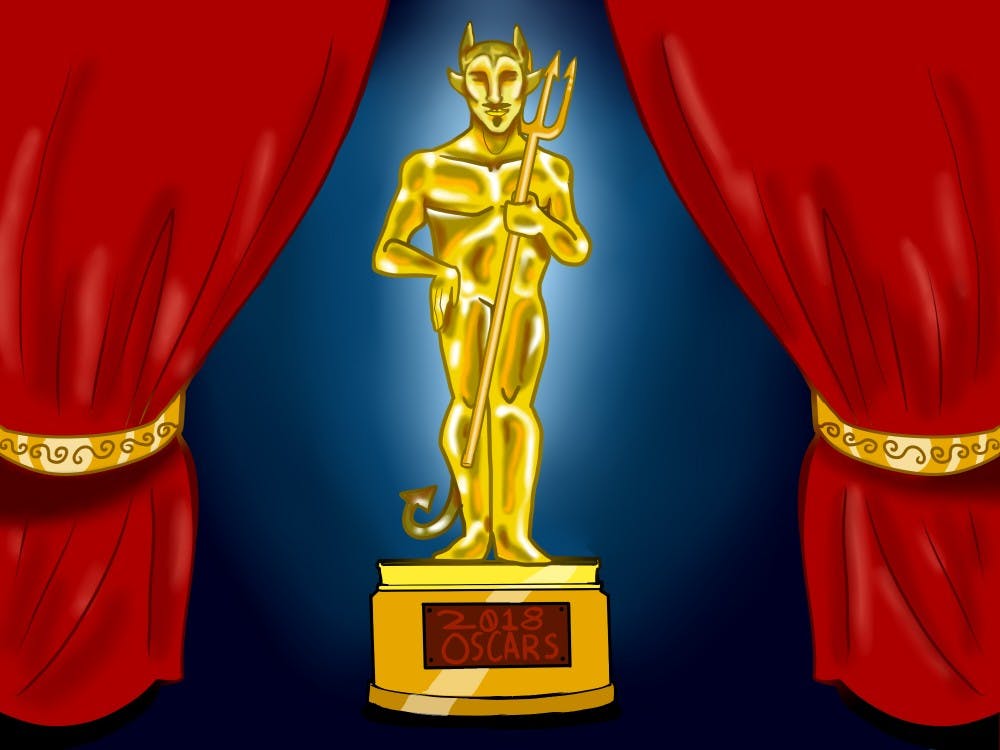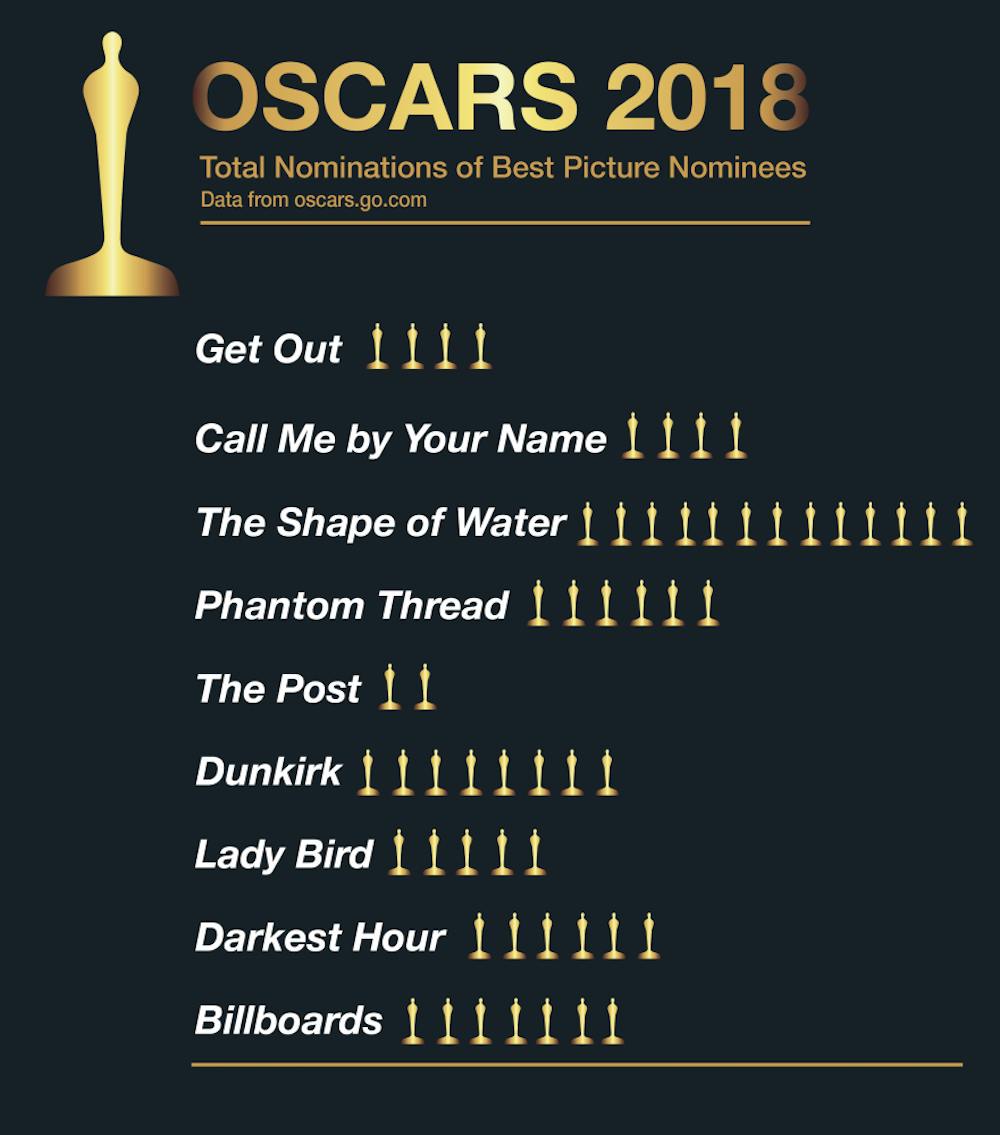Nominations for the 90th annual Academy Awards, which will take place on March 4, were announced in January, inciting the usual array of predictions and lists. But, the pervasiveness of the #MeToo movement and a lack of diversity in the film industry have added another layer to the discussion.
A playlist of films nominated for best picture at the 2018 Academy Awards
Mathew Sandoval, a cultural studies scholar and honors faculty fellow who has taught film classes, said that the nomination of “Get Out," written and directed by Jordan Peele, is easily the most notable of this Oscar season.
“The fact that this film was made at all is just incredible. The fact that it was made and made well is even more incredible," Sandoval said. "The fact that it was made well and well received demands celebration."
In addition to his high praise of “Get Out," Sandoval said that “Three Billboards Outside Ebbing, Missouri” and “Lady Bird” are worthy nominations as well and are important films for students to see because they address identity issues that young people experience.
Sandoval said what made “Three Billboards Outside Ebbing, Missouri” groundbreaking is the nuance and realism with which it presents its characters.
“This film, and almost every character you encounter in the film, has shades of vile ugliness and shades of beauty and, to me, I think it is such a human film in that way,” Sandoval said.
Instructor of film and media studies Catherine Hartmann said that there were many historical nominations this Oscar season, including Greta Gerwig becoming the fifth woman nominated for best director and Rachel Morrison's nomination for best cinematography, making her the first woman to be considered for the award in the 90 year history of the Oscars.
While these nominations are worthy of celebration and indicative of growth, Hartmann said “when we talk about diversity in the Oscars, we fall short.”
Sandoval and Hartmann both said that talking about the lack of diversity of Oscar nominations is addressing a symptom rather than a cause, and that the conversation should be geared on a larger scale.
Sandoval said in order to see diversity on the screen, it first has to be seen in scripts that receive the funding to be well produced, so it is important to have diversity in all levels of production and film creation.
Campaigns such as #OscarsSoWhite have attempted to illuminate the problem, but Sandoval said that this is not enough.
“I love the attention the campaigns brought to it, of course, because it is starting some conversation,” Sandoval said. “But, so long as those conversations are focused on just the Oscars, then we are missing the bigger picture.”
Hartmann said the idea of using the Oscars as a platform to discuss the cultural climate is as old as the Oscars themselves, and Sandoval pointed out that the politics reflected in this year’s Oscars have extended beyond race and diversity.
Sandoval cited Marlon Brando’s 1973 acceptance speech for his role in “The Godfather” in which he sent a Native American actress and activist to receive his award and speak out against the stereotyping of Native Americans in movies and TV.
“This year, everything is circulating around the #MeToo movement,” Sandoval said.
James Franco not receiving nominations for his role in “The Disaster Artist” after accusations of sexual misconduct is indicative of that, Sandoval said.
Hartmann said she sees the fusion of politics and the Oscars as part of the nature and future of the Academy due to the simple truth that “we cannot separate ourselves from our context.”
“It is a misnomer to say that the Oscars were ever just about acknowledging the best in the arts,” Hartmann said.
Film and media studies professor Michael Green said he does not believe in the Oscars because he does not subscribe to the idea of a universal standard for judging art, and he believes that using the Oscars as a political platform is a wasted effort since viewership continues to fall.
“The Oscars are dying,” Green said.
He also said that historically, the Oscars have been a "giant marketing campaign" and "very exclusionary." However, his favorite of the nominations this year is "Lady Bird."
“(The poltiticization of the Oscars) is beautiful as a culture because now we have to figure out how we feel about these things,” Sandoval said.
Reach the reporter at goldham@asu.edu and follow @graceoldham123 on Twitter.
Like The State Press on Facebook and follow @statepress on Twitter.





